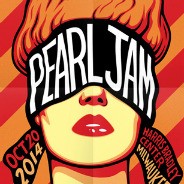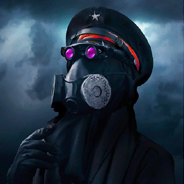1. Они используют судебную систему, опирающуюся на право полиции принудительно обеспечивать соблюдение закона.
2. Отношения между людьми регулируются сочетанием всех этих правил (норм).
3. … понесет наказание в виде штрафа или временного отстранения от участия в игре.
4. Рефери может подать гражданский иск против игрока и потребовать материального возмещения за нанесенные ему телесные увечья …
5. … так как государство рассматривает антиобщественное поведение не как во взаимоотношений между людьми, а как угрозу благосостоянию и порядку в обществе.
When governments make laws for their citizens, they use the system of courts backed by the power of the police to enforce these laws. Of course, there may be instances where the law is not enforced against someone - such as when young children commit crimes, when the police have to concentrate on certain crimes and therefore ignore others, or in countries where there is so much political corruption that certain people are able to escape justice by using their money or influence. But the general nature of the law is enforced equally against all members of the nation.
Government-made laws are nevertheless often patterned upon informal rules of conduct already existing in society, and relations between people are regulated by a combination of all these rules. This relationship can be demonstrated using the example of a sports club.
Suppose a member of a rugby club is so angry with the referee during a club game that he hits him and breaks his nose. At the most informal level of social custom, it is probable that people seeing or hearing about the incident would criticize the player and try to persuade him to apologize and perhaps compensate the referee in some way. At a more formal level, the player would find he had broken the rules of his club, and perhaps of a wider institution governing the conduct of all people playing rugby, and would face punishment, such as a fine or a suspension before he would be allowed to play another game. Finally, the player might also face prosecution for attacking the referee under laws created by the government of his country. In many countries there might be two kinds of prosecution. First, the referee could conduct a civil action against the player, demanding compensation for his injury and getting his claim enforced by a court of law if the player failed to agree privately. Second, the police might also start an action against the player for a crime of violence. If found guilty, the player might be sent to prison, or he might be made to pay a fine to the court – that is, punishment for an offence against the state, since governments often consider anti-social behaviour not simply as a matter between two individuals but as a danger to the well-being and order of society as a whole.
175
266
Ответы на вопрос:
Реши свою проблему, спроси otvet5GPT
-
Быстро
Мгновенный ответ на твой вопрос -
Точно
Бот обладает знаниями во всех сферах -
Бесплатно
Задай вопрос и получи ответ бесплатно

Популярно: Английский язык
-
Составить диалог как визажист делает свадебный макияж девушке...
 Kot235124.03.2021 12:38
Kot235124.03.2021 12:38 -
Put the verb in the correct passive form: 1) Your car (to repair) at the...
 evasaidova9111.02.2023 04:10
evasaidova9111.02.2023 04:10 -
4 Complete the sentences with the correct linking words below. Sometimes...
 tahogomelp07u2x14.07.2022 07:39
tahogomelp07u2x14.07.2022 07:39 -
Put the verb in the correct passive form: 1) Your car (to repair) at the...
 progames200214.04.2023 07:35
progames200214.04.2023 07:35 -
Отвечайте на вопросы ...
 AkaNika04.11.2022 18:29
AkaNika04.11.2022 18:29 -
Дополните предложения, как в примере !...
 Alung25.01.2021 06:39
Alung25.01.2021 06:39 -
Read what Hilda says and write what she wishes. I didn t go to university....
 neket67888506.09.2021 02:55
neket67888506.09.2021 02:55 -
Вопрос относящийся к правилам чтения и деления на слоги в английском языке....
 leksutin110.11.2022 11:49
leksutin110.11.2022 11:49 -
КТО ТО ХОТЬ ОДИН РАЗ ...
 suleimanzhasulan27.09.2022 16:02
suleimanzhasulan27.09.2022 16:02 -
Write in what season they were born. your mothe your farher your granny your...
 Ashmalikova12.04.2020 08:53
Ashmalikova12.04.2020 08:53

Есть вопросы?
-
Как otvet5GPT работает?
otvet5GPT использует большую языковую модель вместе с базой данных GPT для обеспечения высококачественных образовательных результатов. otvet5GPT действует как доступный академический ресурс вне класса. -
Сколько это стоит?
Проект находиться на стадии тестирования и все услуги бесплатны. -
Могу ли я использовать otvet5GPT в школе?
Конечно! Нейросеть может помочь вам делать конспекты лекций, придумывать идеи в классе и многое другое! -
В чем отличия от ChatGPT?
otvet5GPT черпает академические источники из собственной базы данных и предназначен специально для студентов. otvet5GPT также адаптируется к вашему стилю письма, предоставляя ряд образовательных инструментов, предназначенных для улучшения обучения.
